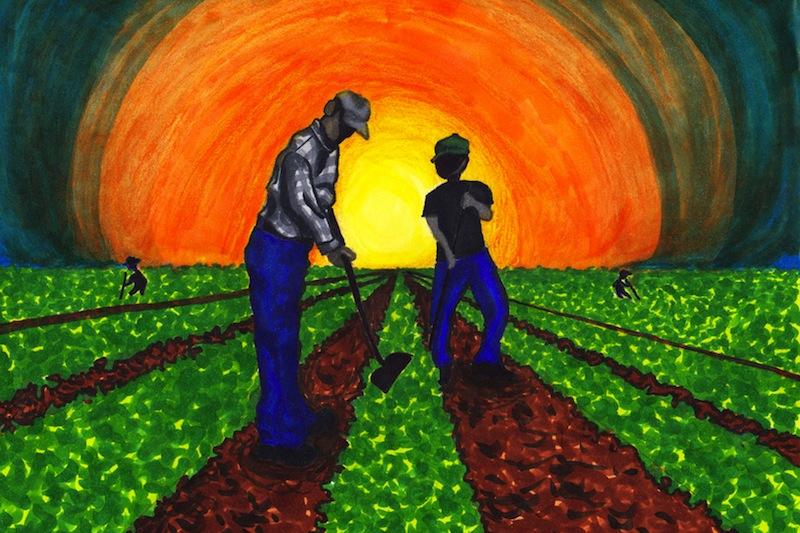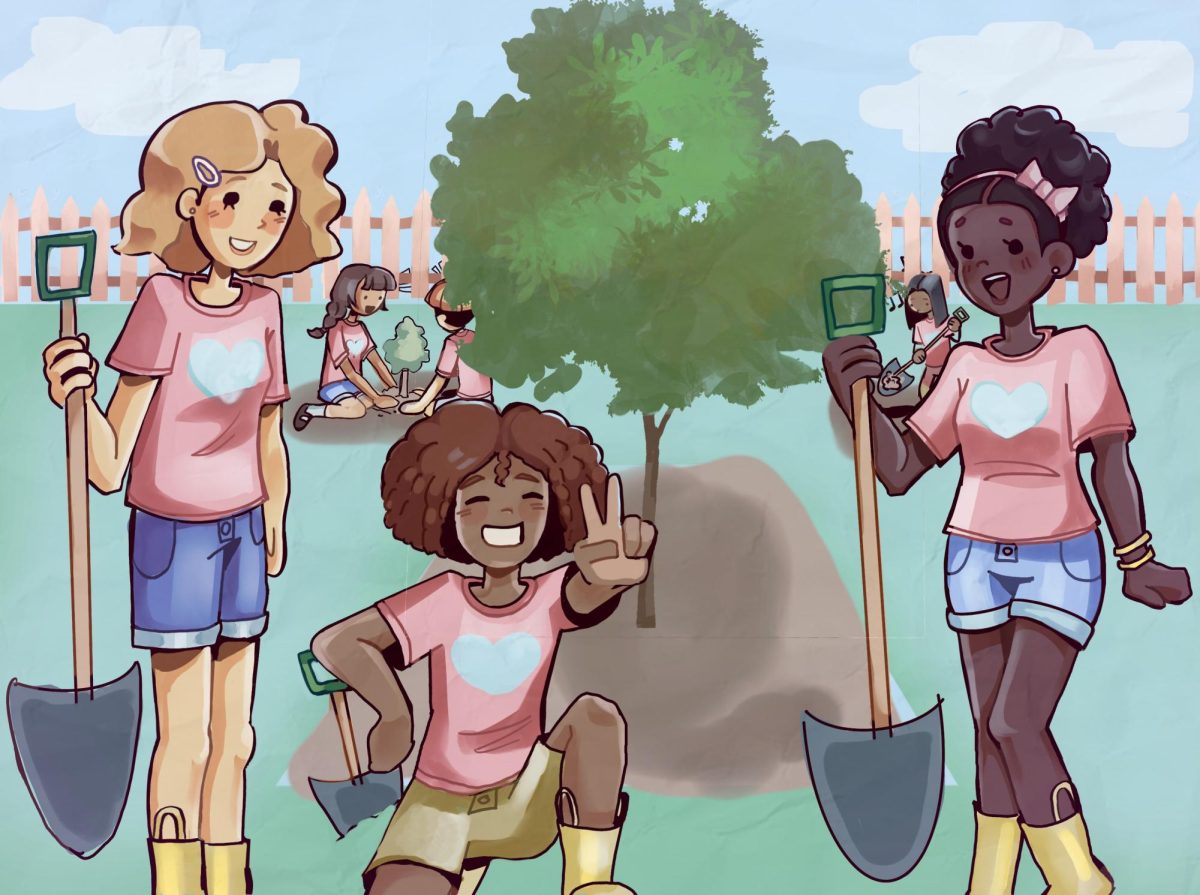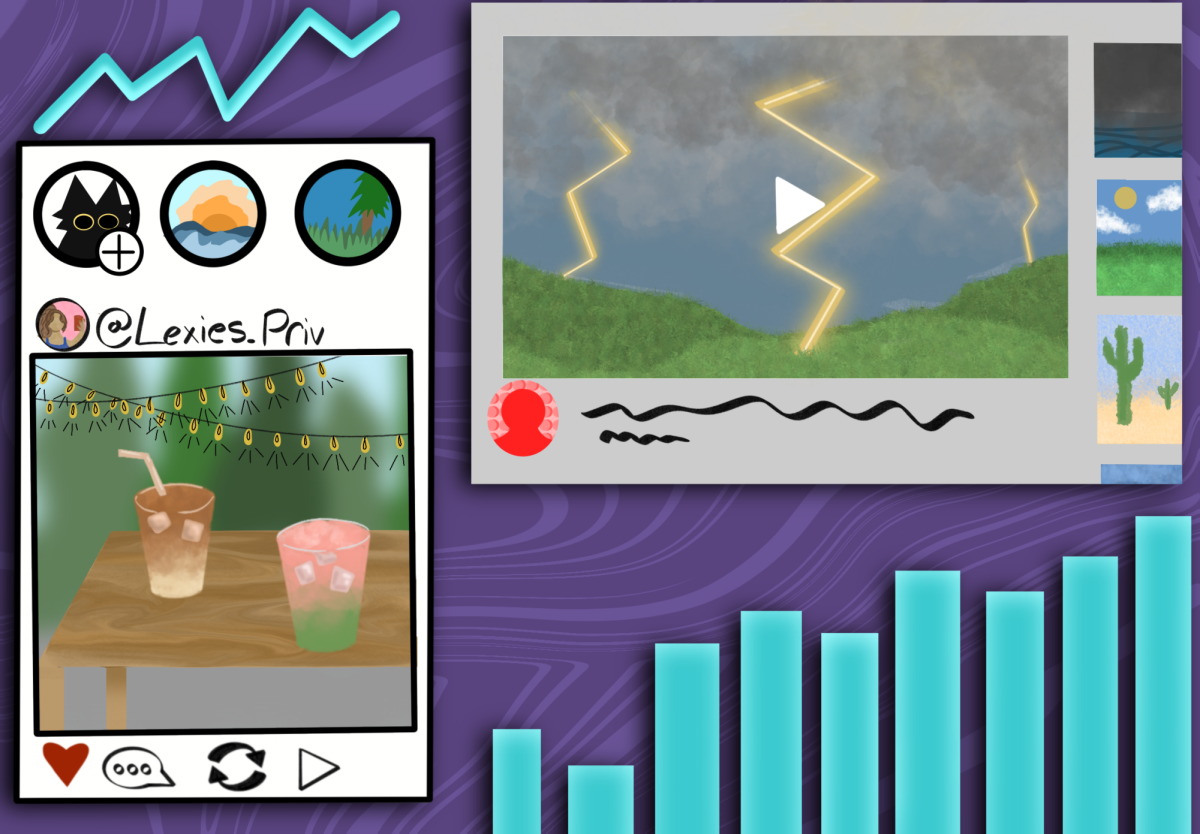Migrant workers are close to home for students like senior Lidia Vences, whose mother, Fidelina Vences, immigrated to the United States from Mexico, hoping to establish a life for her and her family. She worked as a migrant worker for four months, picking fruits and vegetables in the fields. Her wages were based on how much fruit she was able to pick for the day.
“You have to be hunched over all day in the sun, which makes the job a lot harder,” Fidelina said. “It’s hard to work in the fields, but very fun. You get to know everyone who works there. People from a lot of different places and who have different cultural experiences all come together. You don’t make a lot of money, but it was a very good job.”
Lidia is proud of the work and sacrifices her parents have made, regardless of the attitudes expressed by her peers.
“I’m proud of my parents and how hard they work to provide for us, so I don’t really care what other people say about migrant workers or anyone that came here illegally,” she said.
[soundcloud url=”https://api.soundcloud.com/tracks/133212221″ params=”color=ff5500&auto_play=false&hide_related=false&show_artwork=true” width=”100%” height=”166″ iframe=”true” /]
Comments from students have ranged from immigrants being lazy to immigrants taking American jobs. Lidia takes these comments personally, knowing that her mom works immensely hard.
“Particularly this year, I realized how racist people actually are at this school. I never really realized it before. It kind of made me disappointed. I didn’t think people were that racist,” she said.
After hours of intensive labor outside, migrant workers depend upon the money they received for the day’s work to support their family. Migrating from place to place requires families to be uprooted in prospect of other job opportunities.
Lidia has witnessed this job to be an unfilled labor that only migrant workers can supply.
“In reality, they do jobs that people here don’t want to do. For example, most Americans here, they don’t want to be picking fruits in the fields and they don’t want to be working a minimum wage job,” she said.
According to the Migrant Clinicians Network, a migrant worker is considered to be “an individual who is required to be absent from a permanent place of residence for the purpose of seeking employment in agricultural work.” The pay for migrant workers on average annually is below the poverty line.
The labor required from migrant workers can be extraneous and without compensation of a set wage. Senior Angel Martinez, whose dad worked as a migrant worker, believes the inconsistency in pay is what makes the job even more difficult.
“They are under the sun for many hours and they don’t have a stable wage. They get paid on commission. It should be a fixed wage because working very hard every day just to earn a couple dollars is not really worth it,” Martinez said.
In order to curtail the costs inflicted upon migrant workers, Migrant Education serves as a program available for migrant workers and their families to provide educational resources, health care assistance, and other individual programs for students.
Martinez has been apart of Migrant Education since he was in preschool. Maria Villarreal serves as the coordinator for migrant families in the Ventura Unified School District. As of December 6, she reported that there were 181 students in the district who were a part of Migrant Education.
“To be eligible for Migrant Ed, parents have to be working in fields, dairy, livestock, fishing, lumber, or agriculture. They have to then have a face to face interview with a recruiter then go on another interview to be a part of the program,” she said.
Migrant Education strives to create an inclusive program for parents by offering support to parents and help them cross language barriers.
“They want what’s best for their kids. They prioritize education very highly. They just don’t know how to address the system to assist their kids in education,” Villarreal said.
Villarreal believes people have a misconception of migrant workers, assuming that they are all undocumented with lower levels of education.
“We work with both undocumented and documented families. We have families who are educated, teachers and lawyers that came here to try to survive and had to work in the fields,” she said. “Because of the language, they have a difficult time accessing jobs and the opportunities this country has to offer.”
Lidia understands the stigma towards migrant workers to be untrue. Having a mom who worked in the fields and friends whose parents do as well, she feels their portrayal is inaccurate.
“I think that most people assume that migrant workers are just like lazy and I feel like they view them as less or a lower class, but in reality they are really hard workers and it’s hard to be out in the fields all day,” she said. “People just dismiss it because it’s not something like being a doctor.”
Aside from the discrimination Lidia describes, Villarreal thinks the economic circumstances migrant worker’s families are placed in adds to the problem.
“Some of the families ending up living with multiple families in one home. The working conditions are tough and so is trying to earn enough money to pay the bills,” she said.
In order to support their families, parents are not the only ones working in the fields. Villarreal has students in Santa Paula who work alongside their parents to provide a sustainable income. Through Migrant Ed, Martinez has met students who have been placed in this difficult situation.
“Most migrant worker families have their kids work with them also because they don’t really earn that much money, so they try to have another person work with them,” he said. “It’s hard because they have to work after school and have a difficult time with doing homework and focusing on school.”
Martinez and Lidia agree that the difficulties migrant workers and their children face make the job and its payoff very challenging.
Through her experience working with hundreds of families, Villarreal believes despite how hard it is, migrant workers give all they have to offer.
“The people that have the least will give you the most. They will help people as much as they can,” she said.
Background Image Credit: Lucy Knowles/ The Foothill Dragon Press









